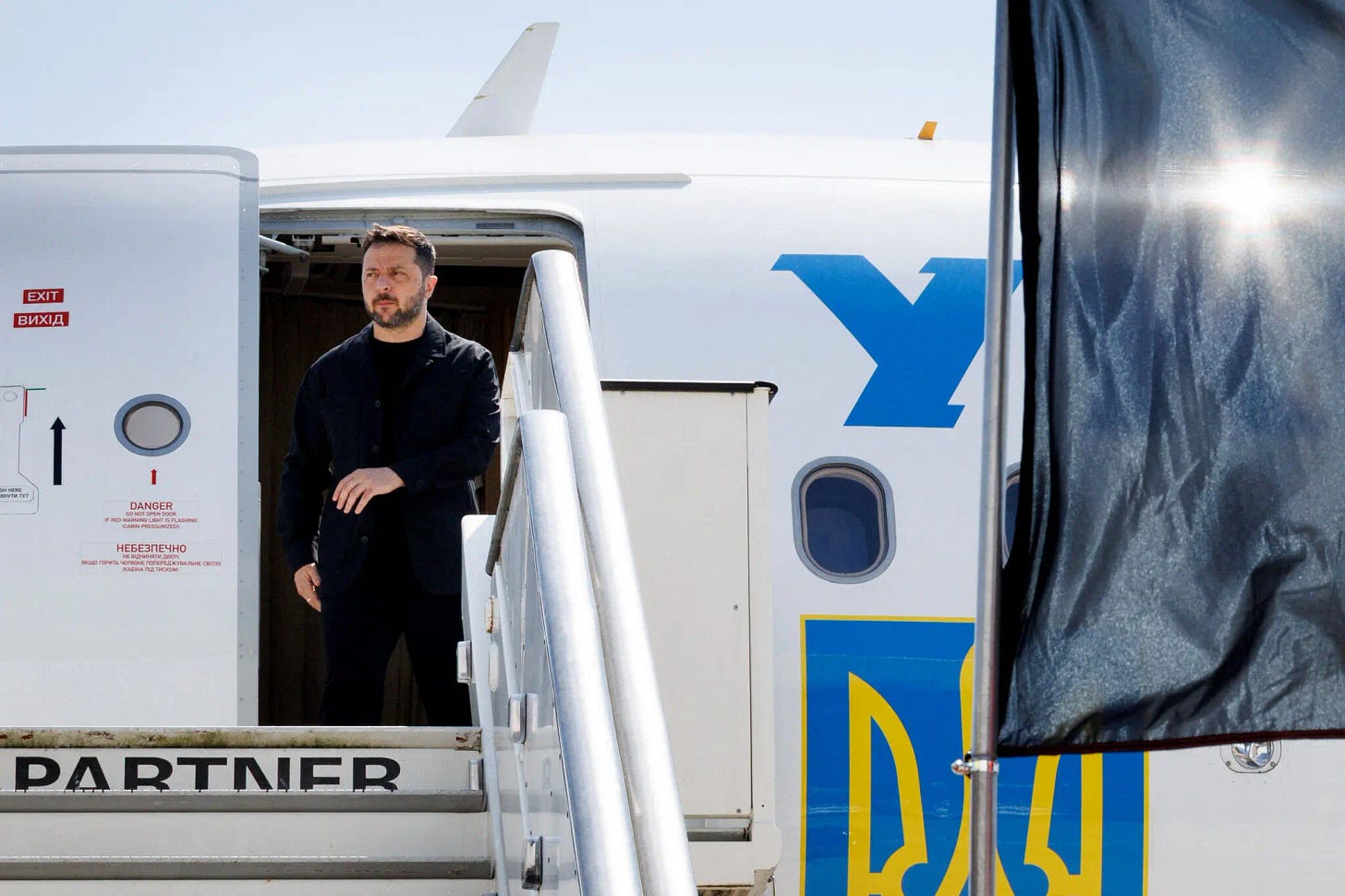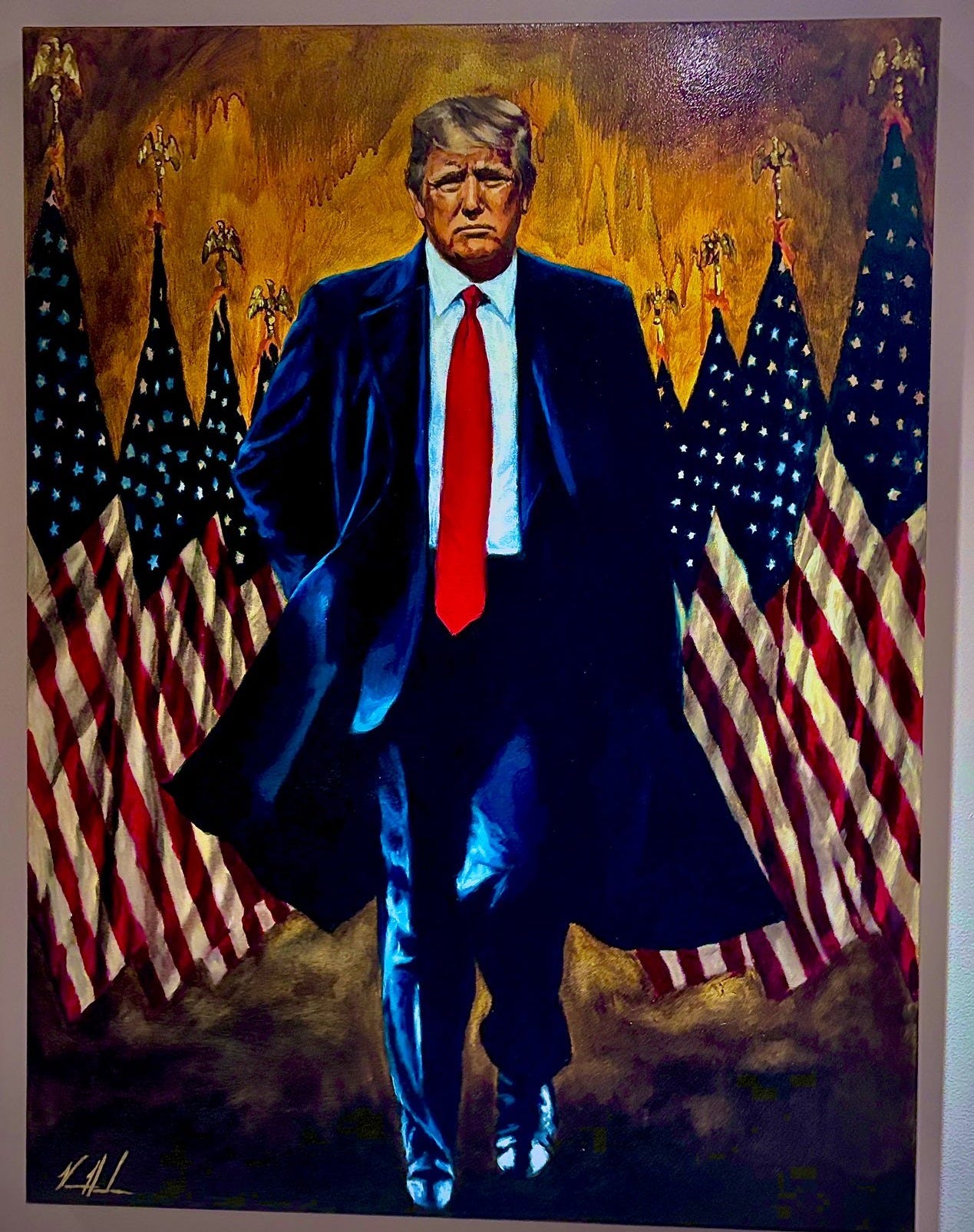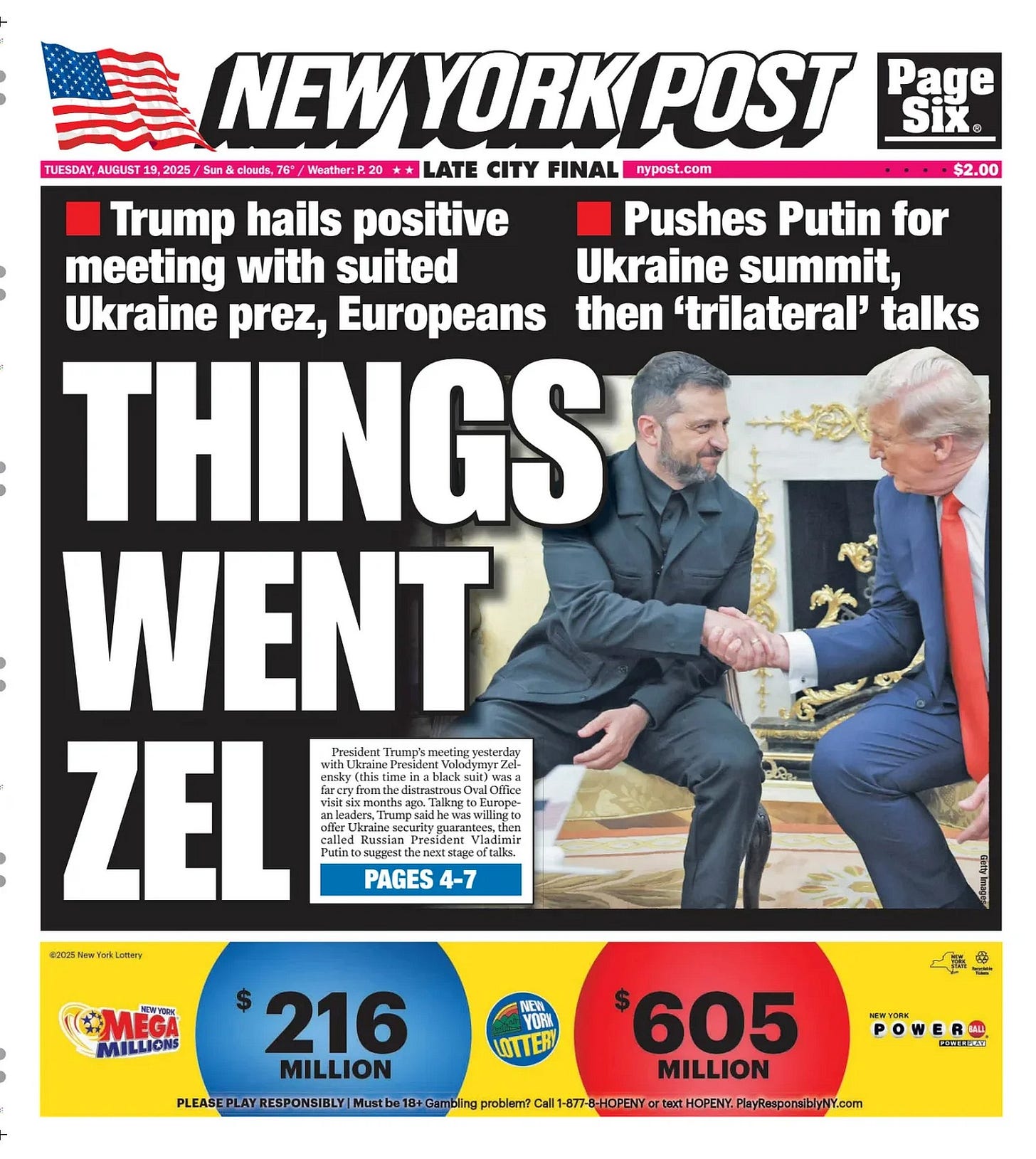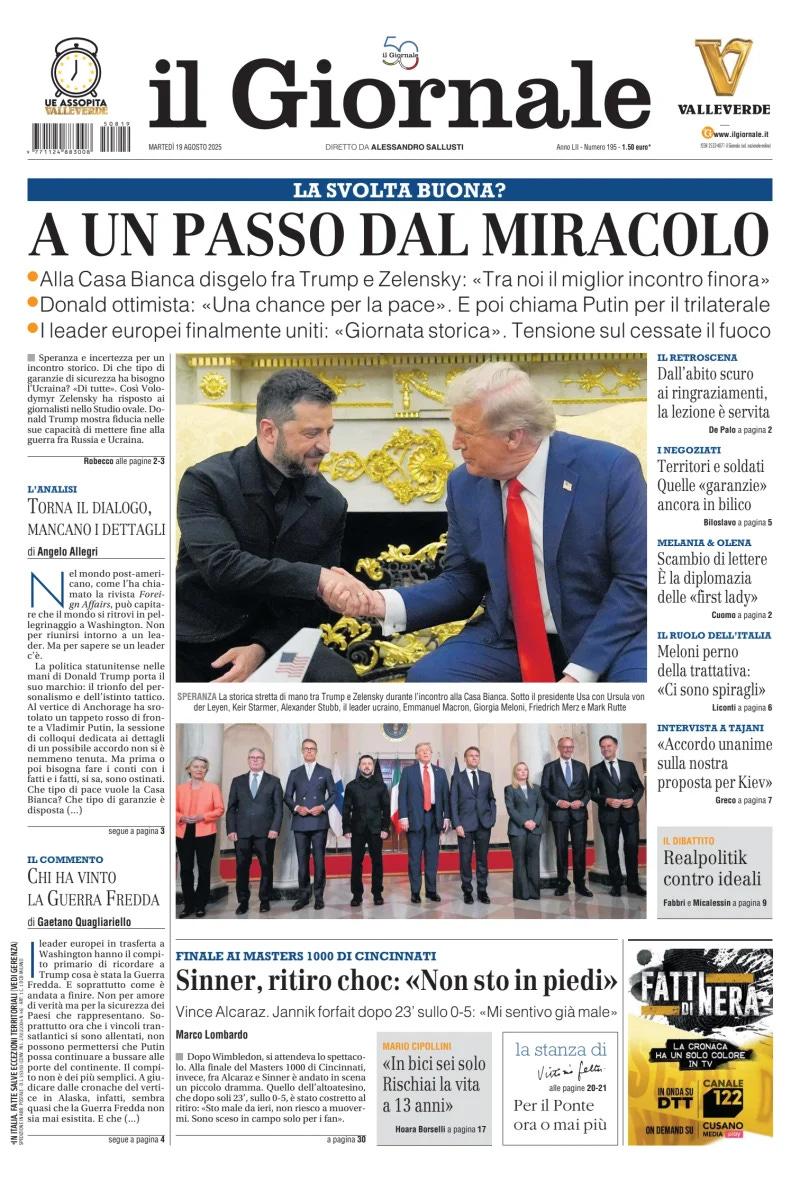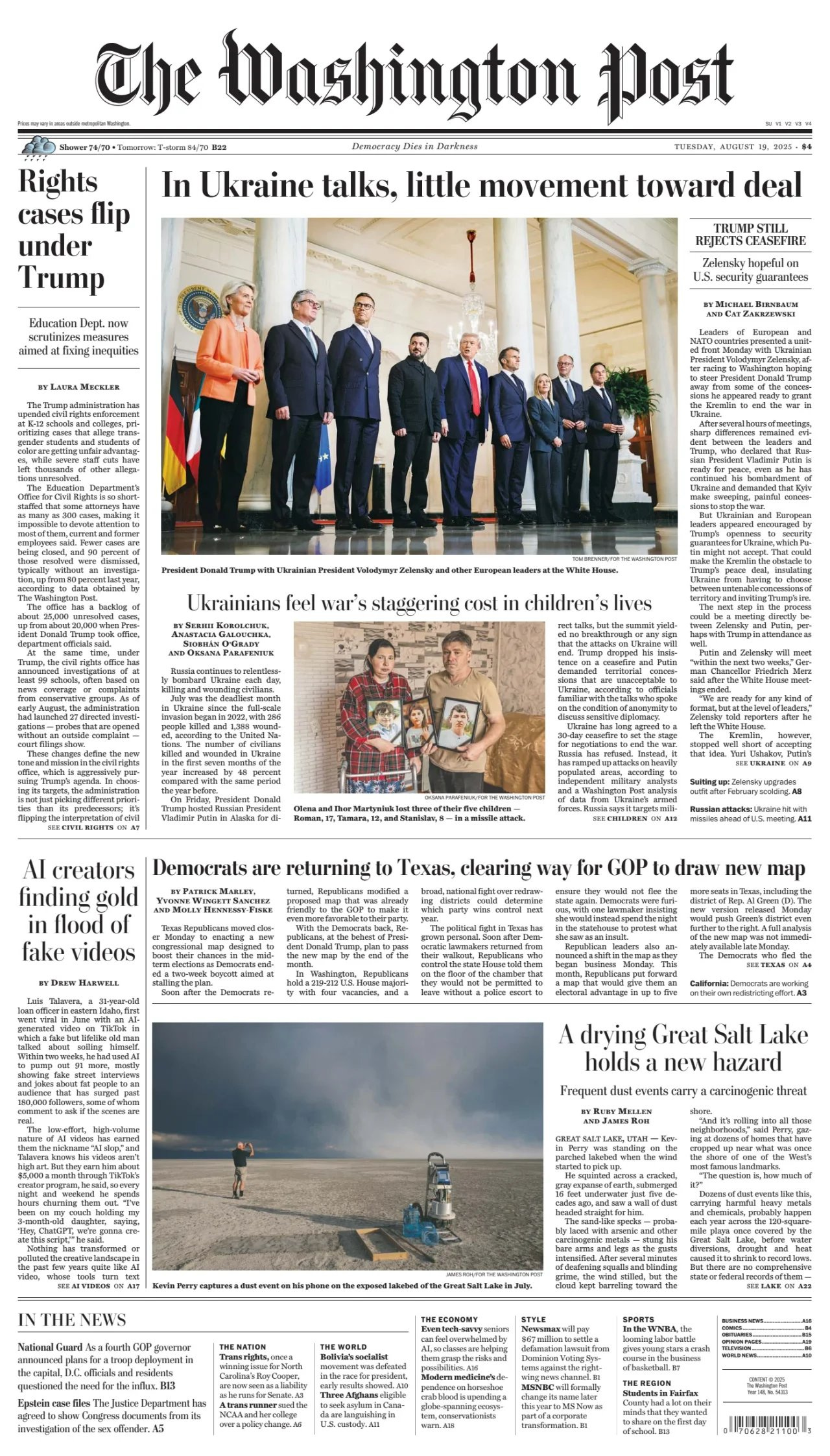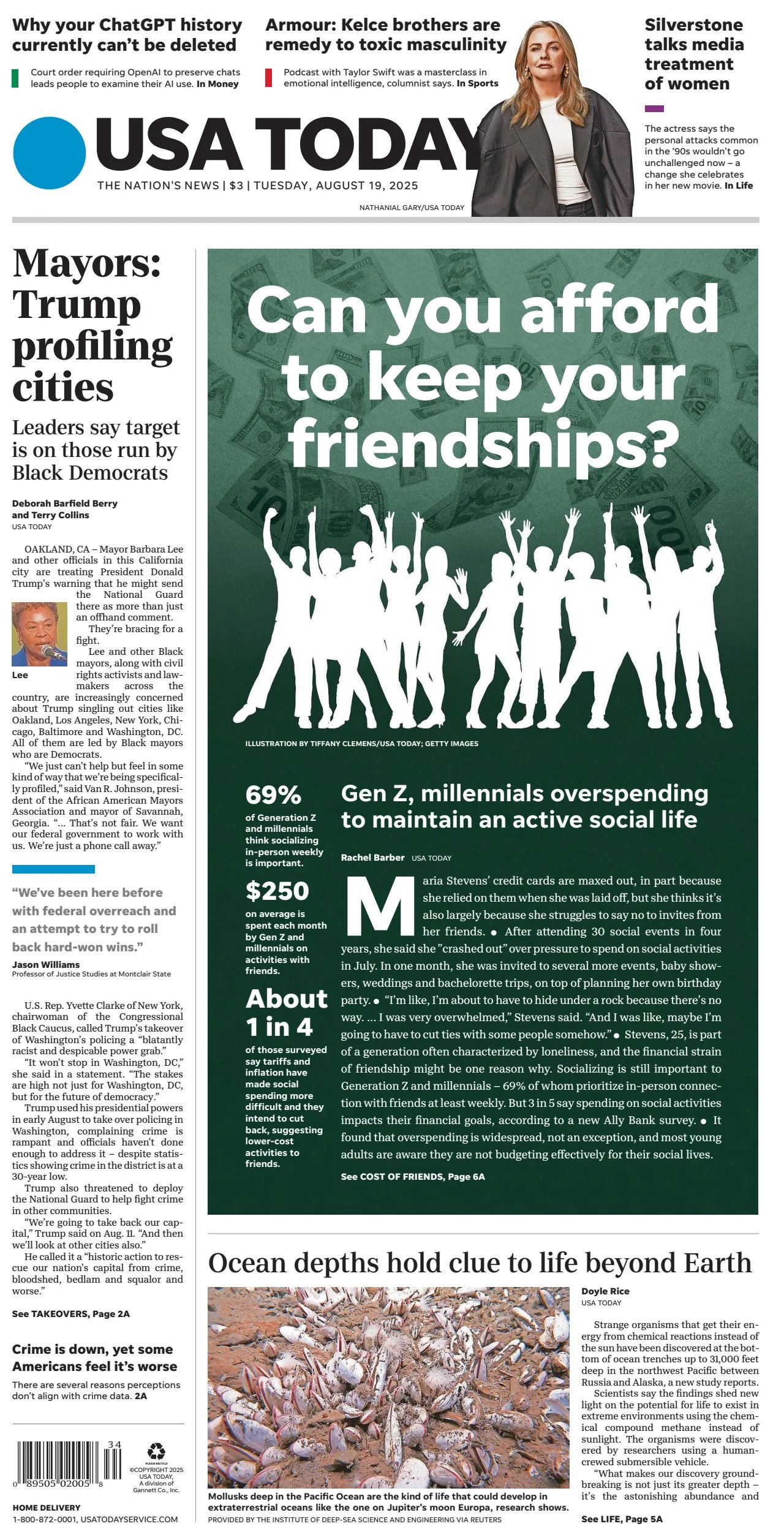Different Day, Same Trump: No Progress on Ukraine Peace
As Trump offers vague promises and Moscow stalls, European leaders face pressure to step up with credible commitments on Ukraine’s security.
Despite back-to-back summits — yesterday’s White House meeting between Presidents Trump, Zelensky, and several European leaders, followed by today’s virtual gathering of the coalition “The Willing” chaired by embattled UK Prime Minister Keir Starmer — Ukraine is no closer to peace. Overnight, the country endured another wave of deadly strikes, underscoring how far talks remain from delivering tangible security.
President Trump reverted to his familiar playbook, offering only vague timelines and hedged assurances — “maybe yes, maybe no” — leaving Ukraine with little more than uncertainty. Meanwhile, the Kremlin appears intent on stretching the process indefinitely, signaling that a presidential-level meeting with Ukraine is off the table for now, with only lower-level contacts being discussed.
In my commentary today, I also pointed out that Europe must step up to the plate. Until early 2022, Canadian Armed Forces trainers were on the ground in western Ukraine — meaning European troops on Ukrainian soil would hardly be unprecedented. But the numbers currently floated fall far short of what is required. At least 15,000 to 20,000 troops would be necessary to create a credible deterrent to Russia. A robust force, taking into account customary rotations, up to 300,000. So far, only France, the UK, and tiny Estonia have pledged forces for a post-war Ukraine — a commitment too modest to shift the balance.
The result is a grinding stalemate: Ukraine under fire, Western allies promising but not delivering, and Moscow buying time. Optimism for an end to the war — or credible security guarantees — looks increasingly out of reach.
In one of the largest overnight aerial attacks in August, Russia launched 270 drones and 10 missiles against Ukraine in the early hours of August 19, Ukraine's Air Force reported. The strikes came just hours after Ukrainian President Volodymyr Zelenskyy arrived at the White House for talks with US President Donald Trump and key European allies. Ukrainian regional officials said on August 19 that in the past 24 hours, Russian shelling across the Kharkiv, Donetsk, Zaporizhzhya, and Kherson regions had claimed the lives of 15 people and injured at least 76 more. It was reported that the Poltava region was hit particularly hard, leaving over 1,500 residents without electricity. In Chernihiv, drones damaged infrastructure and disrupted power supplies. The UN Human Rights Monitoring Mission in Ukraine has issued a warning, emphasizing that the intensification of Russian assaults is devastating civilian life, especially in frontline communities.
"With 286 civilians killed and 1,388 injured, the July casualty number was the highest since May 2022, topping also those for June 2025," the mission reported last week. It added that the sharp rise was primarily due to the increased use of aerial bombs and short-range drones - RFE/RL
Hungary on Monday made a thinly-veiled threat to cut off electricity supplies to Ukraine as the diplomatic row over damage to the Druzhba pipeline escalates.
The fresh war of words erupted last week after a key distribution station of the Druzhba oil pipeline in Russia’s Bryansk region was damaged in a Ukrainian drone strike, temporarily halting oil flows to Hungary and Slovakia. Ukraine carried out a second strike on the pipeline on Monday, this time targeting the Nikolskoye oil pumping station in Russia's Tambov region. Hungarian Foreign Minister Péter Szijjártó has criticised the Ukrainian authorities for carrying out the strikes on the pipeline, describing them as "outrageous and unacceptable" and writing that "whoever attacks our energy security is, in fact, attacking our sovereignty". The Druzhba pipeline delivers oil from Russia to Central Europe through Ukraine and Belarus. Hungary and Slovakia are the only EU member states still receiving large amounts of Russian pipeline oil after securing carve-outs in the bloc's sanctions targeting exports of Russian oil - Euronews
Watch my live interview on CBS News, where I unpacked the past 48 hours of whirlwind diplomacy. I told the anchor that after yesterday’s spectacle at the White House, we woke up to “a different day, same Trump.”
Trump presidential aide Sebastian Gorka posted what’s being panned as a “garish” new portrait of his boss on Monday that is bound for the White House. The new painting features Trump with multiple American flags behind him. The president is wearing his beloved red tie, with the terracotta and burnt orange-colored background matching his stern face. Gorka, the senior director for counterterrorism, hinted it was not the only new artwork set to be hung at Trump HQ. “One of the new paintings of President Trump. More to come,” his caption read. Information about the artist behind the new artwork or where it will may up being hung was not immediately clear. The Daily Beast has contacted the White House for more details. It will potentially end up joining another recent White House addition that illustrates Trump, Abraham Lincoln, and Ronald Reagan in the same painting. Trump is notoriously picky when it comes to his portraits. British artist Sarah Boardman painted a portrait of Trump which hung in Colorado’s State Capitol since 2019, despite the president claiming it had been “purposefully distorted.” It was replaced in Denver by a new painting, based on Trump’s official photographic presidential portrait.
Brazil rejected a US probe into trade between the countries, signaling that Brasília won’t back down in its widening dispute with Washington. US President Donald Trump threatened Brazilian imports with a 50% tariff for what he says is the “witch hunt” of rightist former President Jair Bolsonaro, who is being prosecuted over an alleged coup plot. In response to the threats, Brazil has courted other nations to diversify trade, while China has built a huge export terminal close to São Paulo in part to increase its purchases of Brazilian — rather than US — soybeans. Meanwhile, the Brazilian Supreme Court judge prosecuting Bolsonaro vowed to see the trial through: “There isn’t the smallest of possibilities of retreating,” he told The Washington Post.
A Hong Kong pro-democracy activist and a former lawmaker who are wanted by the city’s authorities have been granted asylum in Great Britain and Australia, respectively. Tony Chung, an activist who was imprisoned under Hong Kong’s sweeping national security law, and Ted Hui, a former lawmaker who was facing trial for his role in anti-government protests in 2019, both announced over the weekend that they have received asylum in the countries where they now live. They are among dozens of activists on the run from Hong Kong authorities. Civil liberties in the city have been greatly eroded since Beijing in 2020 imposed a national security law essentially criminalizing dissent in the former British colony. Both Beijing and Hong Kong have hailed the security law as bringing stability to the financial hub. Hong Kong’s government did not comment directly on the cases but issued a statement on Saturday condemning “the harbouring of criminals in any form by any country….Any country that harbours Hong Kong criminals in any form shows contempt for the rule of law, grossly disrespects Hong Kong’s legal systems and barbarically interferes in the affairs of Hong Kong,” the statement read - AP
Myanmar will begin its general elections on 28 December, its military government announced, in a phased poll widely condemned as a sham that will be used to entrench the junta's power. This will be the first vote since the junta seized power in a bloody coup in 2021, and imprisoned democratically elected leader Aung San Suu Kyi. Myanmar has been embroiled in a civil war since, with deadly battles between the military and ethnic armed groups, many of whom have said they would not permit voting in their areas. Previous plans to hold an election were repeatedly delayed as the military has struggled to contain an opposition insurgency which has gained control over much of the country. Some 55 parties have registered for the polls, state media said Monday, adding that nine of them plan to compete for seats nationwide. With large parts of Myanmar under opposition control and in a state of war, holding this election is a formidable logistical exercise for the country's military rulers. But the junta's leader Min Aung Hlaing, who led the catastrophic coup four and a half years ago, has said the vote must go ahead, and has threatened severe punishment for anyone who criticises or obstructs the election. The National League for Democracy, led by Aung San Suu Kyi, which won landslides in the two elections prior to the coup, will not be allowed to contest this one. The planned election has been widely dismissed, but it has the support of Myanmar's most powerful neighbour China, which views stability in the South East Asian nation as a vital strategic interest. Critics believe the junta will use the polls to maintain its power through proxy political parties - BBC
Exporters and businesses along the Thai-Myanmar border are facing a severe crisis after Myanmar authorities suddenly closed the Second Thai-Myanmar Friendship Bridge.The closure, reportedly ordered to seize control of trade revenues, has brought the flow of large goods to a halt and is threatening trade worth an estimated 130 billion baht. On 18 August 2025, officials in Myawaddy, Kayin State, opposite Thailand's Mae Sot district, unexpectedly shut the border crossing to all large vehicles and commercial goods. The move came without any prior warning to Thai authorities, including customs officials in Mae Sot. According to reports, the order originated from the capital, Naypyidaw, as part of a crackdown aimed at redirecting border trade profits to the central government. For years, a significant portion of this revenue has benefited various ethnic armed groups, including the Border Guard Force (BGF), the dominant military force in the area. Myanmar's government is now seeking to re-establish control and increase its own income - The Nation


